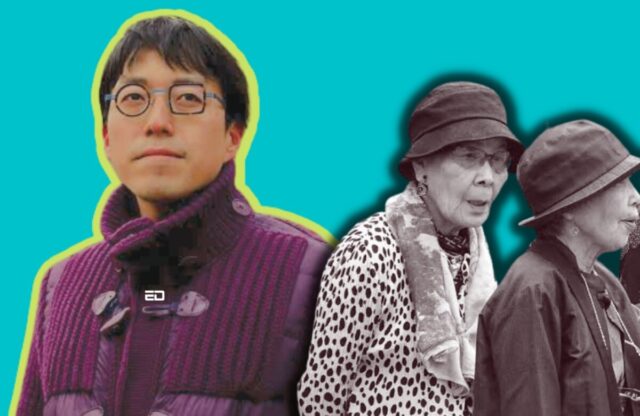A professor at Yale University made a controversial statement regarding the growing population of the elderly in the country. The professor remarked that the older population should kill themselves to ease the State’s burden.
The New York Times reported that the professor has gained celebrity status among the country’s youth. He is also appearing in an advertisement for an energy drink.
Aging Population In Japan
Last year, the census data revealed that people with age 75 and above, comprised over 15% of the population of Japan. The data also suggests that people with an age over 65 accounted for 29.1% of the total country’s population.
Having said that, Japan holds the highest share of the old population followed by Italy and Finland. Japan’s Ministry of Internal Affairs and Communication figures show that the number of elderly men and women in Japan totaled to be 15.74 million and 20.53 million, respectively.
Equating Mass Suicide With A Ritual
Yusuke Narita, the economics professor at Yale University, referred to the growing older population in the country, remarking that they should commit mass suicide. He said during an online program in late 2021, “I feel like the only solution is pretty clear. In the end, isn’t it mass suicide and mass seppuku of the elderly?”
He equated mass suicide with Seppuku, which is a ritual disembowelment. In the 19th century, this ritual was forced upon the Samurai, who had dishonoured the country. The professor also said that ‘euthanasia’ must be made compulsory in Japan.
Also Read: Here’s Why Japan Is Urging Youth To Drink More Alcohol
Last year, the professor was asked to elaborate on his seppuku theories, to which he gave reference to the scene from Midsommar (2019), a horror film, in which a Swedish cult sends one of its oldest members to commit suicide by jumping off a cliff. He graphically described this scene to the group of students.
Comments Misconstrued
The professor has been facing backlash for his insensitive comments on the elderly population. This extreme position, however, has helped him gain huge followers on social media. The followers include frustrated youth who believe that their economic progress has been held back by the political system dominated by the elderly.
In an interview with the New York Times, the professor said that his statements have been taken out of context. He was mainly in favor of pushing the elderly out of leadership positions in business and politics and rejuvenating the sectors with the young population.
Dr. Narita said that he was “primarily concerned with the phenomenon in Japan, where the same tycoons continue to dominate the worlds of politics, traditional industries, and media/entertainment/journalism for many years. The phrases mass suicide and mass seppuku was abstract metaphor. I should have been more careful about their potential negative connotations. After some self-reflection, I stopped using the words last year.”
The extremist position taken by the professor shows that being an academician and having sensitivity are two different things altogether. Some countries have found a rational solution to rising population problems.
‘Mass suicide’ can never be a solution to the growth in the elderly population. Researchers become problem solvers when they empathize and have a sensitive approach towards living beings. Extremism never helps.
Image Credits: Google Images
Sources: Hindustan Times, FirstPost, New York Times
Find the blogger: Katyayani Joshi
This post is tagged under: Japan, Yale University, mass suicide, seppuku, extremism, professor, economics, growth, elderly population, negative connotations, interview, youth, young people, researchers, political systems, frustrated, Yusuke Narita, State, leadership positions, business, politics, rational, Midsommar, horror film, Swedish cult, population growth
Disclaimer: We do not hold any right, or copyright, over any of the images used. These have been taken from Google. In case of credits or removal, the owner may kindly mail us.
Other Recommendations:
Japan Government Is Offering 1 Million Yen Per Child To Leave Tokyo
































